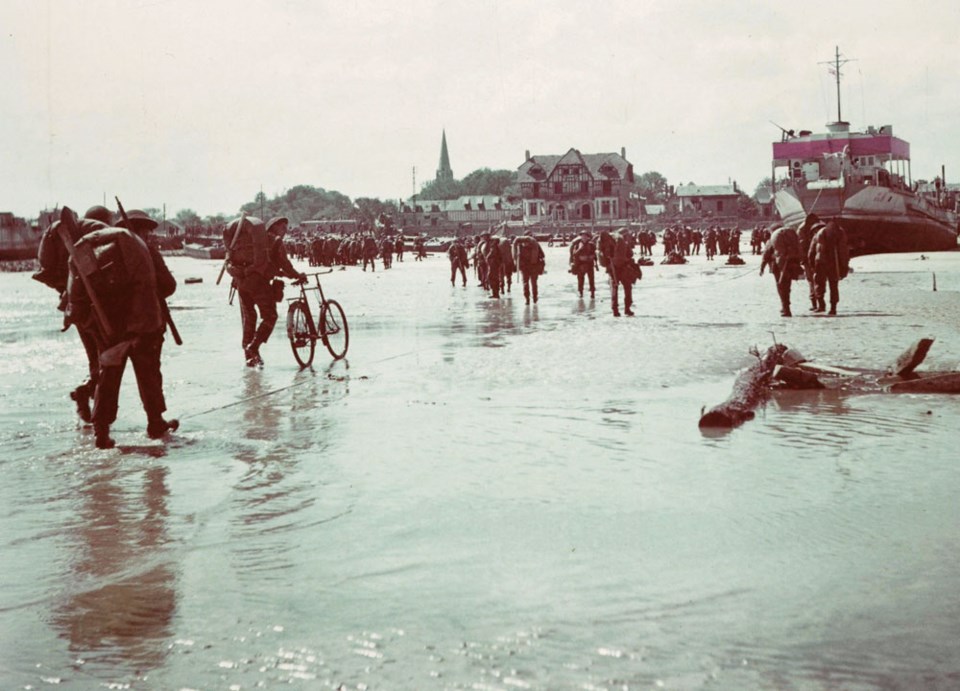As his bomber droned over Juno beach, Sgt. Frank Poole’s perch behind the nose guns gave him an unobstructed view of the light show below.
Parachute flares drifted down, casting an eerie glow in the blackness. Anti-aircraft flak reached into the night sky. Artillery flashed from both sides of the line, Canadian shells exploding among the Germans and German shells bursting among the Canadians who had clawed their way ashore just hours earlier.
It was Poole’s first real taste of the war.
“We were all green, hadn’t done much flying, had only been in England three months,” the 95-year-old says.
“I’d never fired my guns.”
In fact, his twin-engine Wellington trainer didn’t even carry bombs. Its sole mission on D-Day was to lure German night fighters away from the heavy bombers targetting the area near Caen.
“We were decoys, sacrificial lambs,” Poole says. Good thing no enemy aircraft actually came at them.
Poole didn’t have to wait too long to face the Luftwaffe. A few months later, in January 1945, a German night fighter shot down his RCAF Halifax bomber over Hanover, Germany. As Poole bailed out, an explosion blew the wings and tail off the aircraft, knocking him unconscious. When he came to during his long, bitterly cold descent, his right boot was missing. A snowbank cushioned his landing. One of just two crew members to survive, he spent the rest of the Second World War in captivity.
He relates this as the sun streams through the windows of Saanich’s Veterans Memorial Lodge at Broadmead. Listening intently is Bill Capek, who has his own memories of the Normandy campaign.
The initial invasion was over by the time Capek’s Lake Superior Regiment landed, but Juno was still covered by Canadian dead brought from the front.
“When we hit France, saw the bodies around, that’s when it hit me. I thought: ‘What am I doing?’ ”
They dug in on the other side of Caen that night, then pushed on. In August, the young private found himself caught up in the carnage at Falaise. “One shot went through my pant legs. That’s as close as I came to being hit.” At one point they were attacked by Allied aircraft, a foul-up that killed or wounded hundreds of Canadians and Poles.
Capek is 96 now, has been in Victoria since the mid-1960s. He’ll happily talk about his days working at Woodward’s, but is less inclined to discuss the war.
“I try not to think about it at all.”
How does he feel now?
“Alive.”
That makes him a rarity. Even on Vancouver Island, which provided a disproportionate share of the more than 14,000 Canadians who landed on June 6, 1944, it’s hard to find anyone who is still around to tell the tale of D-Day. Seventy-five years is a long time.
Their stories — their real, human stories — are worth remembering, though. The Islander section of today’s newspaper is devoted to the stories of Vancouver Islanders who waded into the fray three quarters of a century ago.



